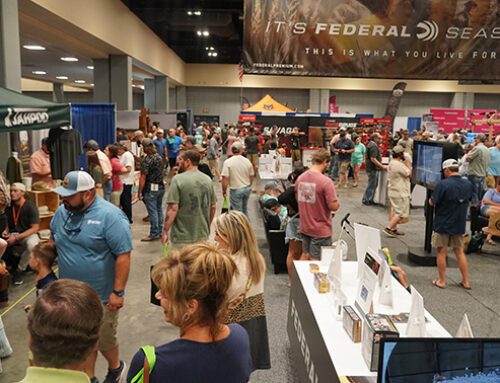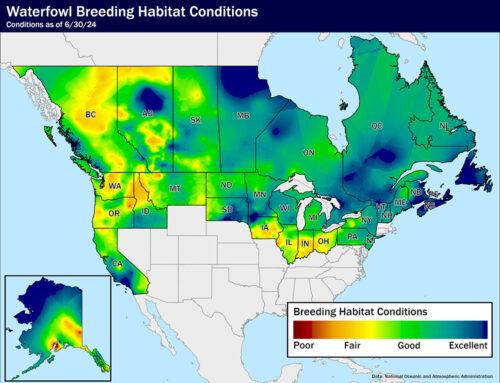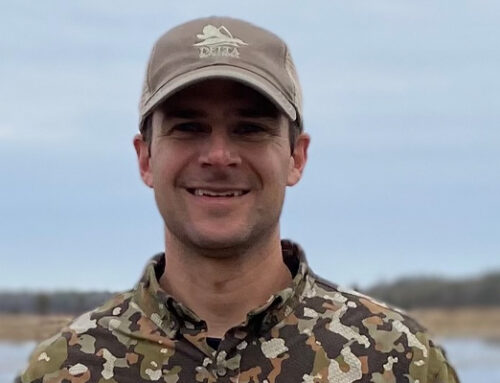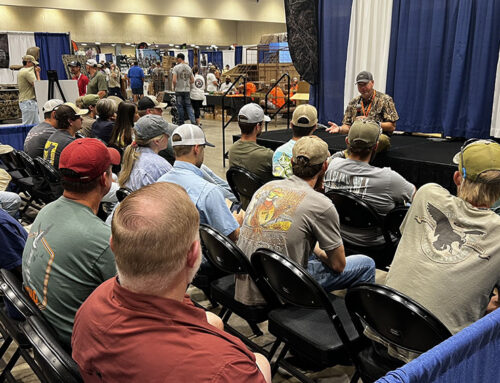Senate Ag Committee Advances 2018 Farm Bill

Legislation contains key Delta Waterfowl conservation provisions that benefit ducks and duck hunters
The U.S. Senate Committee on Agriculture, Nutrition and Forestry passed their version of the Farm Bill out of committee with near unanimous support on Wednesday, moving the critical piece of legislation forward to the full Senate. The Farm Bill, which is renewed every five years, is the single-largest investment in private lands conservation in the United States.
“Some people may wonder why Delta and many of our many colleagues in the conservation community spend so much time and energy on the Farm Bill,” said Dr. Frank Rohwer, president and chief scientist of Delta Waterfowl. “With more than 90 percent of the duck production taking place on private lands and so much vital duck habitat under control of farmers and ranchers, the Farm Bill is an incredibly important piece of legislation for ducks and duck hunters. The U.S. Department of Agriculture has a deep tool box of voluntary, incentive-based programs that work well for farmers and ranchers, while conserving habitat for ducks, and ultimately benefitting duck hunters.”
Delta’s priorities in the Farm Bill include maintaining existing Swampbuster protection for prairie wetlands, expanding the Conservation Reserve Program, enhancing hunting access on private lands through the Voluntary Public Access and Habitat Incentive Program, enhancing programs for habitat management in key wintering areas and advancing Delta’s Working Wetlands program. Those priorities, which are shared by many in the sportsman’s and conservation community, are represented in the Senate bill.
“We offer our sincere thanks to Committee Chairman Sen. Pat Roberts, R-Kansas, Ranking Member Sen. Debbie Stabenow, D-Michigan, and the members of the Committee and their staffs for drafting a very good bill — one that reflects many of the conservation priorities Delta and our conservation partners have expressed over the past several years,” said John Devney, senior vice president of Delta.
Delta’s Working Wetlands program, which has been successfully developed, refined and tested in North Dakota since 2014, advanced in the Senate bill.
“We were very happy to see the Working Wetlands concept as part of the bill with authorizing language,” Devney said. “This sets the framework for working with the Natural Resource Conservation Service to build the program to operational scale and conserve the small wetlands that drive duck production in North Dakota, South Dakota, Minnesota, Iowa and Montana.”
The Ag Committee’s approval puts the Farm Bill on a pathway for a full U.S. Senate vote in the coming weeks. Movement of the House of Representatives version of the Farm Bill is anticipated soon, followed by conference committee work to reconcile the two pieces of legislation. Ultimately, the bill would be signed by the President, hopefully before the current bill expires on Sept. 30.
“Both the Senate and House have done very good work on the Farm Bill,” Devney said. “Delta hopes to continue its support as efforts continue to finalize the bill.”






Leave A Comment